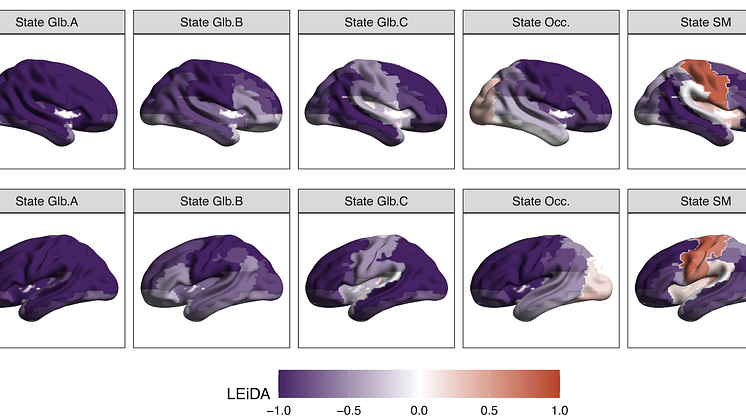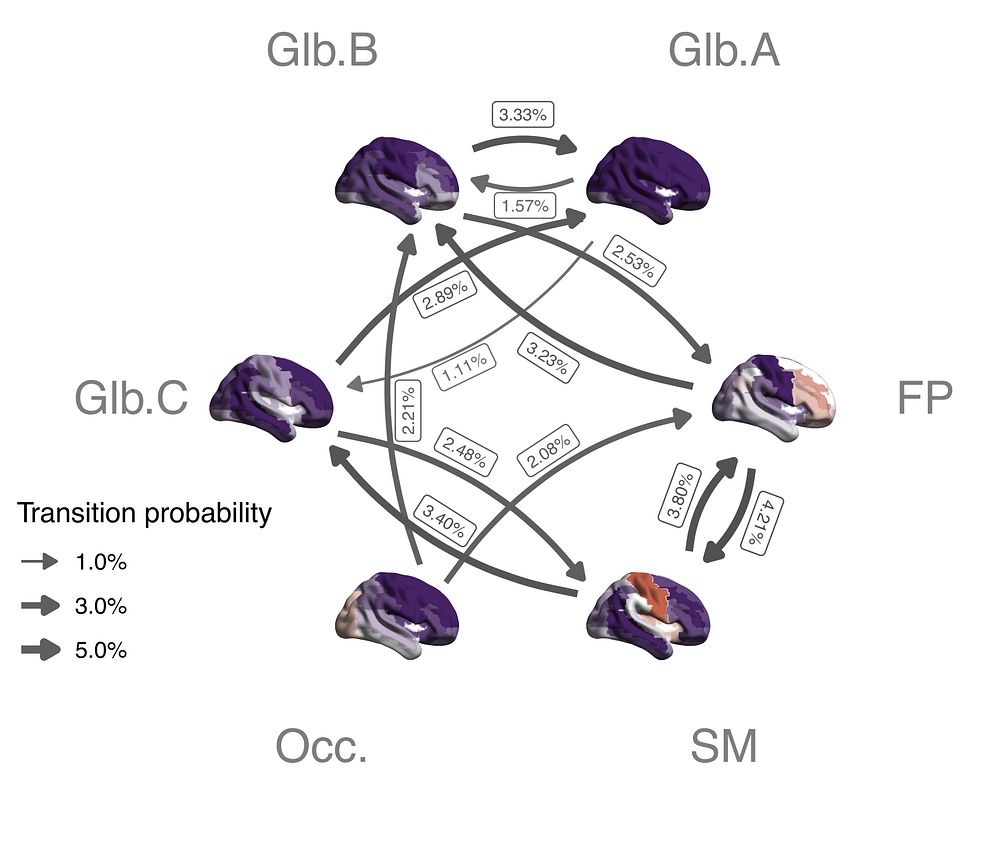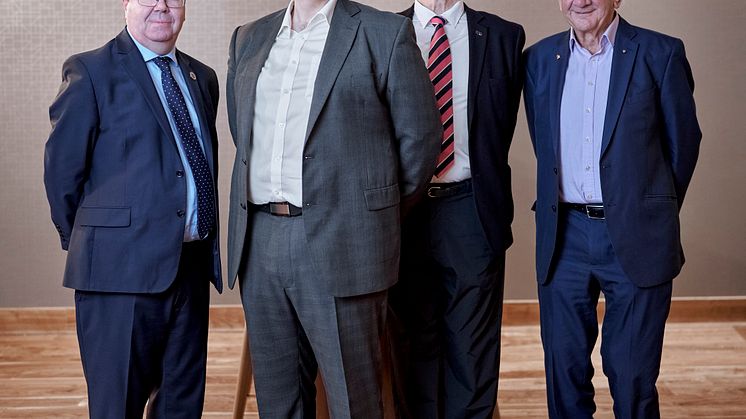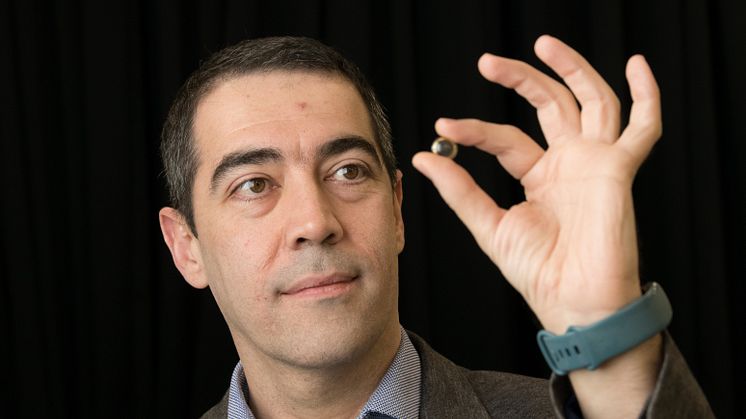
Press release -
Patterns of brain connectivity differ between preterm and full term babies
A new study involving Northumbria University has revealed scans of 390 babies show distinct patterns between full term and preterm babies in the dynamic (moment-to-moment) connectivity of brain networks.
Led by King’s College London and supported by Wellcome and the National institute of Health and Care Research (NIHR) Maudsley Biomedical Research Centre, this is the first study to analyse how the communication between brain areas changes moment-to-moment in the first few weeks of life.
Published in Nature Communications, the study also found that these dynamic patterns of brain connectivity in babies were linked to developmental measures of movement, language, cognition and social behaviour 18 months later.
Joint senior author, Dr Dafnis Batallé, Senior Lecturer in Neurodevelopmental Science at the Institute of Psychiatry, Psychology & Neuroscience (IoPPN), King’s College London said: “Although we know how influential brain connectivity is on development, we know little about the patterns of dynamic functional connectivity in early life, and how they link to the way our brains mature. By analysing brain scans from 390 babies, we have begun to identify different transient states of connectivity that could potentially provide insight into how the brain is developing at this age and what behaviours and functions these patterns are linked to as the baby grows older.”
There is increasing awareness that conditions such as ADHD, autism and schizophrenia have their origins early in life, and that the development of these conditions may be linked to neonatal brain connectivity and its fluctuations over time.
Researchers used state-of-the-art techniques to evaluate functional Magnetic Resonance Imaging (fMRI) data on 324 full term babies and 66 preterm babies – born at less than 37 weeks gestation. They assessed how the connectivity changed moment-to-moment during the time the baby was in the scanner to provide a dynamic picture. Previous research with babies has typically used a measure of connectivity averaged over time spent in the scanner.
Dr Lucas França, first author and Assistant Professor in Computer and Information Sciences at Northumbria University, said: "These findings are a result of carefully adapting methodologies derived from the domains of computer science and physics, specifically employed to unveil the intricacies inherent to the human neonatal brain.
“When these methodologies are allied to advanced techniques to obtain unprecedented data like the one from the Developing Human Connectome Project, we have a unique opportunity to deepen our understanding of the largely unknown realm of brain dynamics in early life.”
The study used methods that tap into how the brain connectivity fluctuates: one method that considers connectivity patterns across the whole brain and one that considers patterns within different regions of the brain.
The study identified six different brain states: three of these were across the whole brain and three were constrained to regions of the brain (occipital, sensorimotor and frontal regions). By comparing term and preterm babies the researchers showed that different patterns of connectivity are linked to preterm birth, for example pre-term babies spent more time in frontal and occipital brain states than term babies. They also demonstrated that brain state dynamics at birth are linked to a range of developmental outcomes in early childhood.

Joint senior author, Professor Grainne McAlonan, Interim Director of NIHR Maudsley BRC and Professor of Translational Neuroscience at IoPPN, King’s College London said: “This is a real step forward in the use of imaging techniques to investigate how brain activity is continually changing in early life and how this provides a platform to support subsequent developmental milestones in childhood.
“The difference between term and preterm babies suggests that time spent in or outside the womb shapes brain development. We now need to try and find out if it is possible to use these insights to identify and help those who need some additional support.”
The data was sourced from the Developing Human Connectome Project (dHCP), which is led by King’s College London and funded by the European Research Council. It is providing high resolution magnetic resonance brain images from unborn and newborn babies to scientists worldwide to support a large number of world-leading research projects into brain development and cerebral or mental health disorders.
Professor David Edwards, Principal Investigator of dHCP and Head of Department of Perinatal Imaging and Health, King’s College London said: “This study shows the power of the large set of data acquired by the Developing Human Connectome Project, an open science programme funded by the European Research Council and led by King’s College London in collaboration with Imperial College London and the University of Oxford. The data are freely available to researchers who want to study human brain development.”
Neonatal brain dynamic functional connectivity in term and preterm infants and its association with early childhood neurodevelopment by Franca, L.G.S et al. is published in Nature Communications.
Topics
Categories
UNIVERSITY OF THE YEAR 2022 (Times Higher Education Awards)
Northumbria is a research-intensive university that unlocks potential for all, changing lives regionally, nationally and internationally. Find out more about us at www.northumbria.ac.uk
--- Please contact media.communications@northumbria.ac.uk with any media enquiries or interview requests ---














